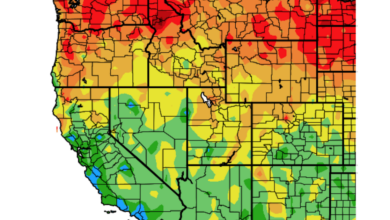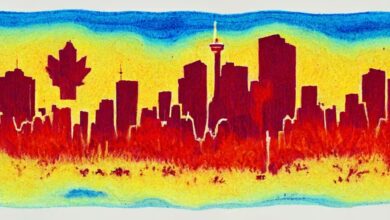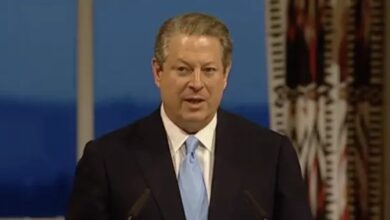A Misguided Dive into Supposed Climate Denial and the Danger of Constructed Narratives • Watts Up With That?

In the vast landscape of climate discourse, few articles stand out as starkly as Susannah Crockford’s piece titled “That Which They Will Not See: Climate Denial as a Vector of Epistemological Crisis in the Contemporary United States”. At first glance, the article promises an in-depth exploration of the cultural epistemology of climate denial in the US, particularly in the southern states. However, a closer examination reveals a piece riddled with constructed narratives that seem more intent on smearing a broad group of people than offering a genuine understanding of their perspectives.
“Climate denial continues as a cultural epistemology for anthropogenic climate change in the United States, despite worsening impacts.”
From the outset, the framing of climate skepticism as “denial” is problematic. This term inherently dismisses any counter-arguments and paints a vast group with a broad brush, without delving into the complexities of their beliefs. The use of the term “denial” is a classic rhetorical move, designed to equate skepticism about certain aspects of climate science with the denial of undeniable historical events, such as the Holocaust. This is not just misleading but intellectually dishonest.
“Engaging with the literature on agnotology, the social construction of ignorance, the argument is made that this literature as it pertains to climate denial does not go far enough in accounting for the persistence of the rejection of climate science.”
Here, Crockford insinuates that those skeptical of mainstream climate narratives are merely ignorant. But what if they’re informed by a different set of data, experiences, or perspectives that the mainstream has overlooked or intentionally suppressed? By leaning on the concept of agnotology, the article conveniently sidesteps the possibility that there might be legitimate reasons for skepticism, painting it instead as a mere product of ignorance.
“Theoretically drawing from anthropological work on the incommensurability of paradigms, the argument is based on a tripartite construction of denial as produced through an interaction of a cultural norm of radical empiricism, a political-media ecosystem funded by fossil fuel companies, and a cosmological schema derived from conservative white evangelicalism.”
This tripartite construction is a glaring example of the article’s flawed approach. By attributing skepticism solely to these three factors, Crockford ignores a myriad of other potential reasons for differing viewpoints and perpetuates a false narrative. It’s a reductionist approach that doesn’t account for the vast complexities of human belief and understanding.
“Francis Beer and Robert Hariman (\nCitation2020\n: 20) argue that the Covid-19 pandemic exposed an epistemological crisis of stark knowledge disparities between vernacular and scientific explanations of causality and solutions.”
Drawing parallels between the Covid-19 pandemic and climate change might seem like a stretch, but there’s a strong element of truth here. It’s just that it’s the opposite of what Crockford concludes. In both cases, ideologically captured institutions, academia, and media have marched in lockstep to force approved narratives and suppress and censor unapproved ones. The “epistemological crisis” isn’t just about knowledge disparities but about the suppression of dissenting voices and the dangers of echo chambers.
“I situate this reframing in conversation with anthropological work on white evangelical Protestants, a group associated in particular with climate denial, either through opposition to secular culture or end-times chronotope.”
This is perhaps the most egregious part of the article. By singling out white evangelical Protestants, Crockford engages in a baseless smear campaign, suggesting that this group is the primary driver of climate skepticism without any substantial evidence. It’s a classic case of scapegoating, diverting attention from the real issues at hand.
In sum, Crockford’s article is a glaring example of the very epistemological bubble it purports to critique. By constructing false narratives and failing to genuinely engage with the complexities of climate skepticism, it continues the path of polarization and othering.
Articles such as this are simply expressions of frustration that those ignorant savages just won’t listen to reason. It’s a frustration borne of moral narcissism and unwavering obeisance to expertocracy. The epistemological crisis occurring is one of a failing expertocracy forcing its viewpoints and worldviews through an onslaught of propaganda and censorship on a populace that can see the contradictions and flaws in those viewpoints.
Source: https://www.tandfonline.com/doi/full/10.1080/00141844.2023.2242599



